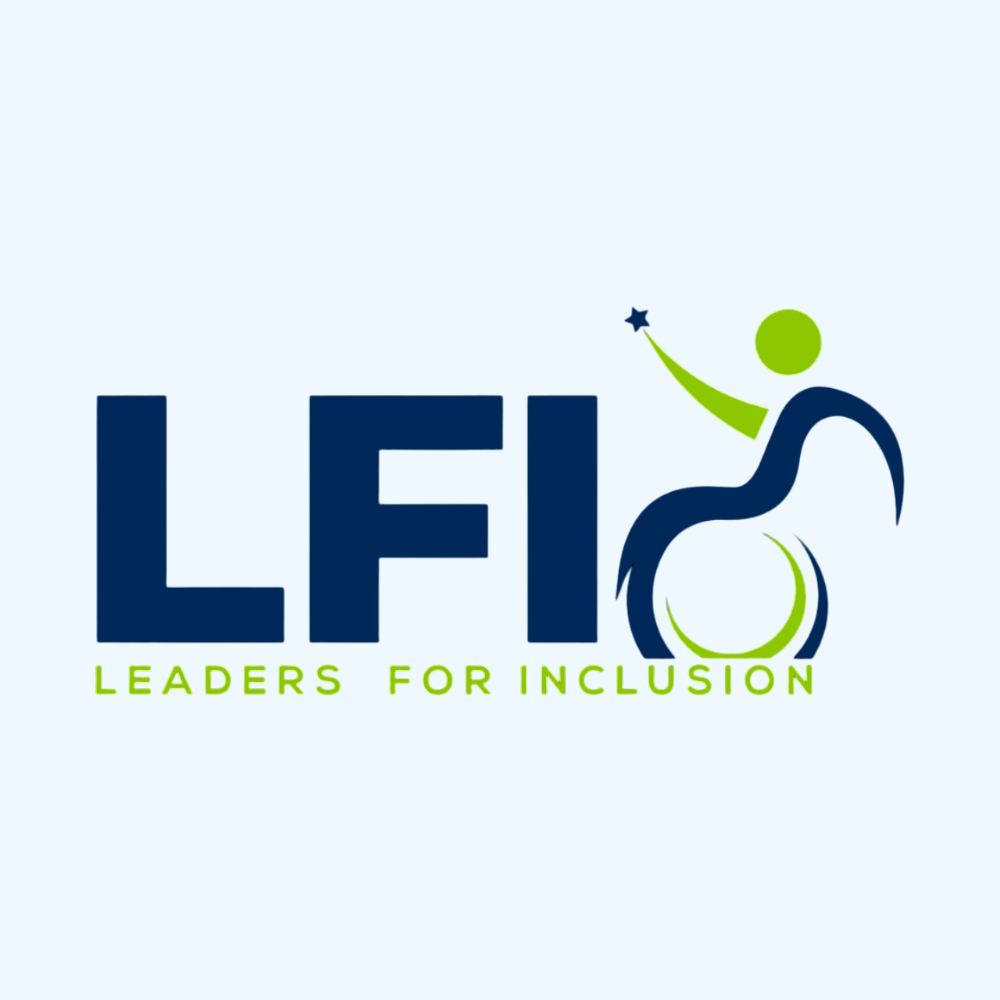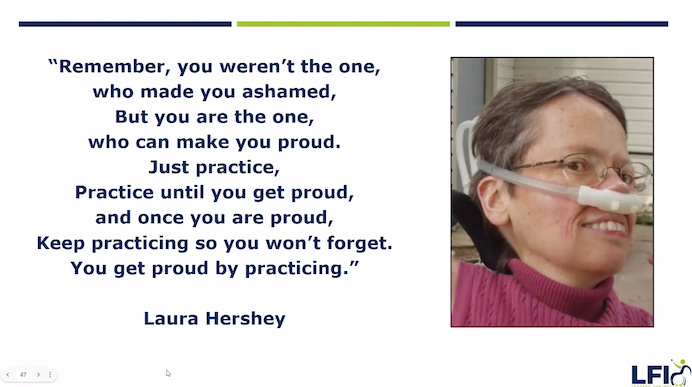
Disability PRIDE: Inclusion & Belonging Training
“The only disability in life is bad attitude” – Scott Hamilton (American figure skater and Olympic gold medalist)
People with disabilities are the largest and most diverse minority group within the population, representing all abilities, ages, races, ethnicities, religions, and socio-economic backgrounds.
Disability Pride Month is celebrated each year in July. Disability Pride has evolved from a day of celebration to a month-long event. Disability Pride initially started as a day of celebration in 1990—the year that the Americans with Disabilities Act (ADA) was signed into law. That same year, Boston held the first Disability Pride Day. The first official celebration of Disability Pride Month occurred in July 2015, which also marked the 25th anniversary of the Americans with Disabilities Act.
On July 17, 2024, Dr. Olesya Zaglada joined “Disability Pride: Inclusion and Belonging Training” of Michigan Disability Rights Coalition. It was a virtual session on celebrating Disability Pride and raising awareness on how to be inclusive to people with disabilities.
At first, it was discussed ableism, which is defined as “the discrimination of and social prejudice against people with disabilities based on the belief that typical abilities are superior. At its heart, ableism is rooted in the assumption that disabled people require ”fixing” and defines people by their disability.” Examples of ableism are fear, pity, invasive curiosity, assuming that everyone wants to be healed, cured, or needs help, etc.
“Disability justice is a multi-issue political understanding of disability and ableism, moving away from a rights-based equality model and beyond just access to a framework that centers justice and wholeness for all disabled people and communities.” Mia Mingus (American writer, educator, and community organizer who focuses on issues of disability justice).
The inclusion scale was introduced:
- Denial exclusion
People with disabilities are not included in the planning process.
- Charity
The organization pities and sees people with disabilities live as tragedies.
- Project with funding
People with disabilities are included until the group wants to do something the person with a disability “can’t do.” The attitude is that they can “sit this one out” and join later.
A very impressive example was given.
You use a wheelchair. You and your friends are planning to go to an event. Once you get to the event, you and your friends realize that the place where the event is held has steps and no other accessible entrance. You angrily thing, “I hate that I’m in a wheelchair,” and tell your friends to go without you—there is no sense in you ruining their fun.
- Understanding- Integration
People with disabilities are plugged into an organization, and systems are adapted slightly for that individual to fit into the way the organization has always done business.
- Transformation of a System Inclusion
Authentic relationships. Belief in and commitment to inclusion at all levels.
The final part of the webinar was the precious advice on what everybody can do to promote Disability Pride:
- Examine your own thinking around concepts of disability.
What biases and stereotypes has society taught us?
How can you promote disability pride? Help people see both the losses and the gifts.
- Learn about disability history and culture and represent this in your organizations.
- Become involved in disability advocacy and the disability justice movements.
- Learn about the disability related resources in your area.
- Access the current level of inclusion at your organization/practice.
“Remember, you weren’t the one, who made you ashamed,
But you are the one, who can make you proud.
Just practice,
Practice until you get proud,
Keep practicing so you won’t forget.
You get proud by practicing.”
Laura Ann Hershey (was a poet, journalist, popular speaker, feminist, and disability rights activist and consultant. Her poem “You Get Proud By Practicing” is one of her most famous works.)

Dr. Olesya Zaglada enjoyed the training, as it was very inspiring and celebrated Disability Pride.
